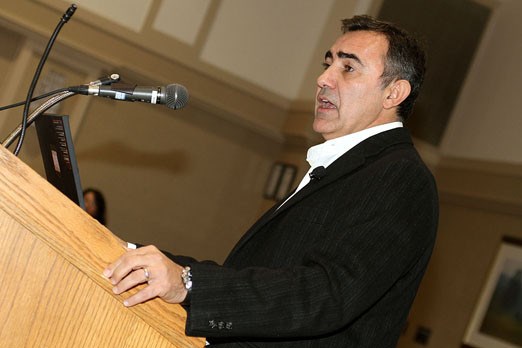Palliative care in Canada needs a new look, says a pair of experts who have watched the country’s health-care landscape drastically change along with an aging population.
Where once cancer caused the most need for specialized end-of-life care, today a myriad of afflictions, including Alzheimer’s, Parkinson’s, lung and heart diseases, have presented caregivers with a lot more to consider, forcing new ways of doing business upon them.
Jose Pereria, a professor and head of the palliative care division at the University of Ottawa, said patients with different illnesses have different needs. Caregivers need the facilities and training to deal with them.
It’s not like it used to be, he said.
"For example, a person may still have many months of life left, and be treated for cancer or for end-stage heart disease, and experience a severe shortage of pain or shortness of breath, depression or anxiety and need to have that controlled," Pereria said on Wednesday before the start of a two-day forum on palliative care being held in Thunder Bay.
"We need to have the expertise and the resources to be able to address the needs of those patients at that particular time, get things under control so they can stay in the community and live the best quality of life they can in whatever time they have left."
Patients in the last few days of life may have different needs, he continued.
Caregivers must be able to ensure that pain is controlled, but still allow them to communicate with grieving loved ones and be aware of their surroundings.
The system is starting to make the necessary adjustments, but it’s happening slowly, he said. The goal must be to start palliative care earlier and steer away from associating it solely with impending death.
"Because of that many patients are reluctant to access palliative care services because they don’t want to go there – even though they would benefit enormously from it. Also there are health professionals who don’t want to refer patients to palliative care services, or activate palliative care approach, because they’re concerned they may increase the distress of a person," Pereria said.
Mary Lou Kelley, a professor in the school of social work at Lakehead University’s and a research affiliate at the school’s Centre for Education and Research on Aging and Health, – hosts of the biannual Passport to Palliative Care conference – said locally a great job has been done improving home-care, but there’s more work to be done in easing the suffering of those who choose to live out their lives in long-term care facilities.
Change can come, but it will take a readjustment of community core values and attitudes, she said.
"Death is inevitable. One hundred per cent of people die. And most deaths now are expected deaths, because of the aging population, because of chronic disease. But we’ve created a culture in which it’s not really OK to talk about it, to plan for it, and we view death as a crisis," she said.
"It’s always sad, but it doesn’t have to be a crisis. And I think if we take a much more planned, thoughtful approach, we’ll be much, much better able to provide care to people how they want it and where they want it."
Kelley would like to see a freestanding hospice unit built in the city, an asset that would allow long-term care patients to get the care they need, but in a home-like environment, but can’t do so in their own home.
"That is a gap. And we need to always improve the integration of our health-care system for people who are dying. While our programs are good, they don’t work as well together as they might."
The issue is being addressed at a regional level, Kelley said.
Sign in or register
- Messages
- Post a Listing
- Your Listings
- Your Profile
- Your Subscriptions
- Your Likes
- Your Business
- Support Local News
- Payment History
Registered Users
Already have an account?
New Users
Create a free account.
